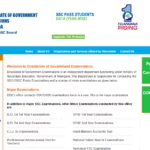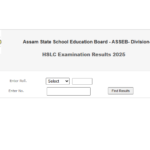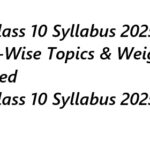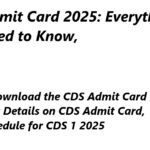Explore the best career options after 12th and get expert career guidance after 12th. Learn how to choose the right career after 12th board exam. Choosing the right career after completing your 12th board exams is one of the most important decisions in your life. The pressure to pick a career path can be overwhelming, but with careful planning and thoughtful reflection, you can make a choice that aligns with your interests, skills, and long-term goals. This guide will walk you through a step-by-step process to help you make an informed decision about your future.
1. Understand Your Interests and Strengths
The first step in choosing the right career after 12th is to assess your interests and strengths. Think about the subjects and activities you enjoy most. Are you passionate about science, technology, or literature? Do you enjoy working with people, solving problems, or analyzing data? Identifying your interests and strengths will help you narrow down the career options that are most suitable for you.
Tips:
- Take a career aptitude test to gain insights into your natural talents.
- Reflect on the subjects you excelled in during your 12th grade.
- Ask yourself what you enjoy doing in your free time, as hobbies can often point to a potential career path.
2. Research Available Career Options
After 12th, there are a variety of career options available across different fields like Science, Commerce, Arts, and even new-age careers in digital technology, design, and entrepreneurship. It’s crucial to research the options in detail to understand what each career entails, including its scope, salary potential, job responsibilities, and required skills.
Career Options Based on Streams:
- Science Stream: Engineering, Medicine, Research, Biotechnology, and Data Science.
- Commerce Stream: Business Administration, Chartered Accountancy, Economics, Banking, and Finance.
- Arts Stream: Literature, Journalism, Psychology, Sociology, Animation, and Fine Arts.
- Vocational Courses: Event Management, Fashion Designing, Hotel Management, Digital Marketing, and more.
Tips:
- Explore various career websites and blogs to get a comprehensive view of different professions.
- Attend webinars, career fairs, and counseling sessions to speak with professionals and get firsthand information.
3. Evaluate Your Strengths and Career Compatibility
Once you have a clearer picture of the options, it’s time to evaluate your own strengths and how well they align with potential careers. For example, if you are highly analytical and enjoy problem-solving, fields like engineering, data science, or accounting might be a good fit. If you’re creative and have an eye for design, you could consider careers in graphic design, advertising, or architecture.
Tips:
- Consider your personal qualities, such as patience, creativity, or leadership abilities.
- Think about the lifestyle you want, including work-life balance, salary expectations, and job stability.
- Ask for advice from teachers, family, or professionals who know you well.
4. Consider Future Job Market Trends
The job market is constantly evolving, with new technologies and industries emerging rapidly. It’s important to choose a career that not only aligns with your interests but also has long-term growth potential. Research industries that are expected to thrive in the future, such as artificial intelligence, renewable energy, healthcare, and e-commerce.
Tips:
- Stay informed about emerging fields and career trends by reading industry reports and news articles.
- Explore opportunities in fields that are expected to see significant growth, such as technology, healthcare, and sustainable industries.
5. Explore Higher Education Options
Some careers require additional education or specialized training after 12th. Depending on the field you choose, you may need to pursue a degree, diploma, or certification. It’s important to explore the educational requirements for your chosen career and plan accordingly.
Tips:
- Research universities, colleges, and online courses offering the programs you are interested in.
- Look into the admission process, eligibility criteria, and potential scholarships.
- Consider pursuing internships, part-time jobs, or apprenticeships to gain hands-on experience.
6. Take Career Counseling or Guidance
If you’re feeling overwhelmed or confused about which career path to take, seeking professional career counseling can be a great way to gain clarity. Career counselors can help you evaluate your strengths, interests, and options to make a more informed decision.
Tips:
- Visit a school or private career counselor to discuss your concerns and get personalized advice.
- Use online career assessment tools to get a better understanding of potential careers suited to you.
7. Set Short-Term and Long-Term Goals
Once you’ve selected a career path, it’s time to set clear short-term and long-term goals. Short-term goals might include preparing for entrance exams or applying to colleges, while long-term goals could involve gaining work experience, certifications, or pursuing higher education.
Tips:
- Break your goals down into actionable steps, such as researching colleges, preparing for exams, or networking with professionals.
- Stay motivated by reminding yourself of the rewards and personal satisfaction your chosen career will bring.
8. Seek Mentorship and Gain Experience
Learning from someone who has been through the process can be invaluable. Mentorship can help you understand the challenges of a particular career and provide guidance on how to overcome them. Additionally, internships or volunteering in the field you are interested in can give you practical insights and help you build a network of contacts.
Tips:
- Look for internships or volunteer roles related to your career interest.
- Reach out to professionals in your chosen field for advice or job shadowing opportunities.















Leave a Reply